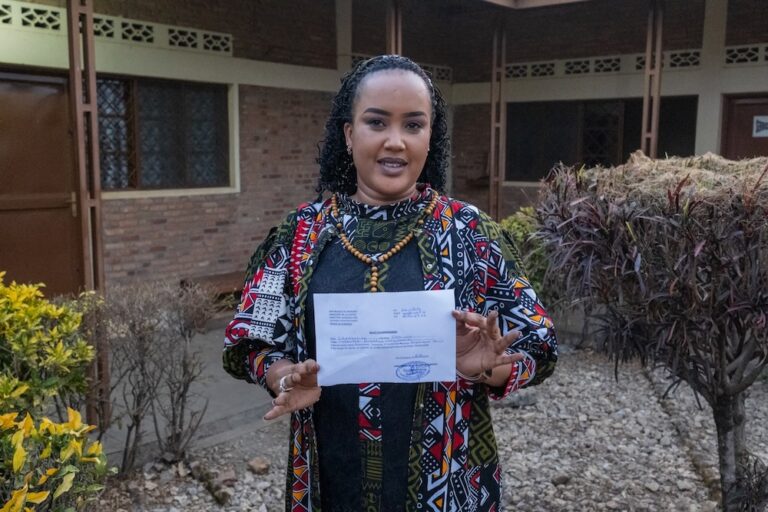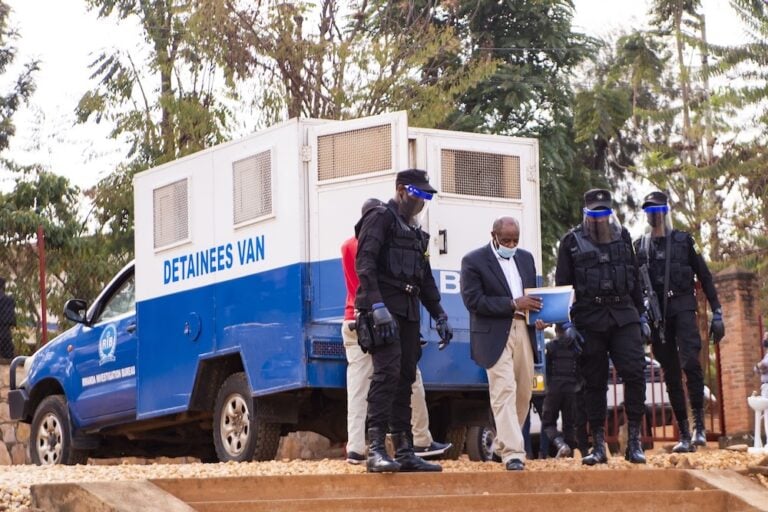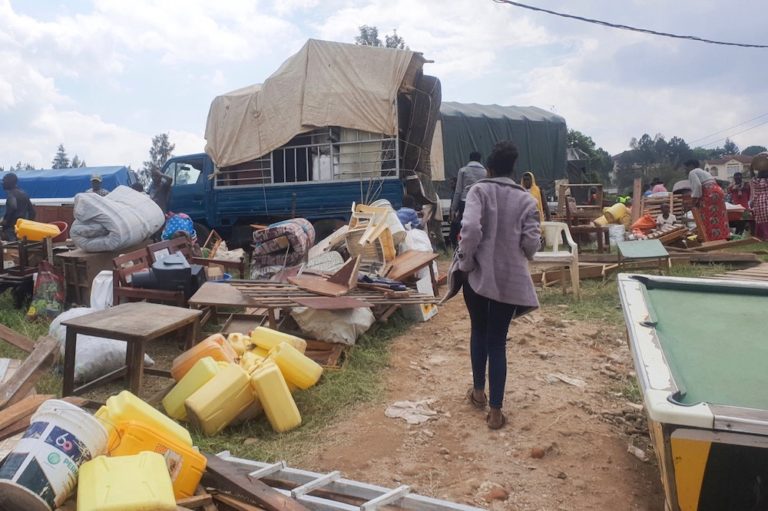(RSF/IFEX) – Reporters Without Borders has voiced deep concern about the future of press freedom and independent journalists in Rwanda after studying the very disturbing comments made by four government ministers, another senior official and two members of the security forces during a programme broadcast by the state-owned media on 9 September 2007. “These intemperate […]
(RSF/IFEX) – Reporters Without Borders has voiced deep concern about the future of press freedom and independent journalists in Rwanda after studying the very disturbing comments made by four government ministers, another senior official and two members of the security forces during a programme broadcast by the state-owned media on 9 September 2007.
“These intemperate remarks by senior government officials are a clear threat to the less disciplined publications,” the press freedom organisation said. “This intimidation session shows that independent journalists were right to constantly denounce the government’s hostility towards them, despite the government’s denials. Instead of saying they are ready to punish the media severely, the authorities should find a way to coexist with them intelligently.”
The programme “Kubaza bitera kumenya” (“Ask in order to know”) broadcast by state-owned Radio Rwanda and Télévision Rwandaise (TVR) on 9 September was about “Security, justice, the economy and the media vis-a-vis the public’s well-being.” The guests were information minister Laurent Nkusi, interior minister Sheikh Musa Fazil Harelimana, justice minister Tharcisse Karugarama, finance minister James Musoni, the local administration ministry’s secretary-general, Eugène Balikana, army spokesman Maj. Jules Rutaremara and police spokesman Chief Inspector Willy Marcel Higiro.
The interior minister announced that the government was going to take “measures” against journalists who try to “overthrow” the government. In a clear allusion to the recent publication of a classified defence ministry document by the privately-owned weekly “Umuseso”, he also said the police should arrest any journalist who publishes an official document until he identifies the source of the leak.
The finance minister accused the independent press of cooperating with “negative forces” and claimed that “the security services have discovered that certain journalists are paid by countries opposed to our government.” Agreeing with this comment, the army spokesman said those media that criticised were helping Rwanda’s enemies and should therefore be considered part of “the many negative forces.”
The information minister pointed out “mistakes” in three of “Umuseso”‘s recent issues – No. 291, which had an article headlined “Soldiers desert over low pay,” No. 292, which listed the “Ten mistakes that President Paul Kagame often makes” and No. 293, which listed “Ten reasons why Rwandans have had enough of Paul Kagame’s government.” He said the security services could not remain silent in the face of this kind of behaviour.
Insisting that the president was “respected and honoured internationally for the progress he has brought to the country,” the finance minister asked, “what right does a Rwandan journalist have to make this or that allegation about him?” He said the government would apply a law adopted in 1978, when Juvénal Habyarimana was president, to ensure that “the figure of the president is respected.” According to the state-owned news agency RNA, this law equates insulting the president to insulting the country.
During the programme, a listener phoned in and questioned whether the publishers of the three leading Kigali-based independent newspapers, Charles Kabonero of “Umuseso”, Bonaventure Bizumuremyi of “Umuco” and Jean-Bosco Gasasira of “Umuvugizi”, were Rwandan nationals.
Kabonero told Reporters Without Borders he was very worried by this “campaign waged by four members of the government, an army representative and a representative of the police,” and announced that he would temporarily suspend publication of his newspaper. He said it was becoming impossible for journalists to work as their sources would now refuse to provide information for fear of reprisals.
“We fear for our lives,” he said. “When members of the government call us enemies of the country, it serves as a green light to all those inclined to go after us, as they can now claim they are protecting the country’s interests.”


